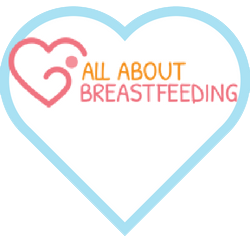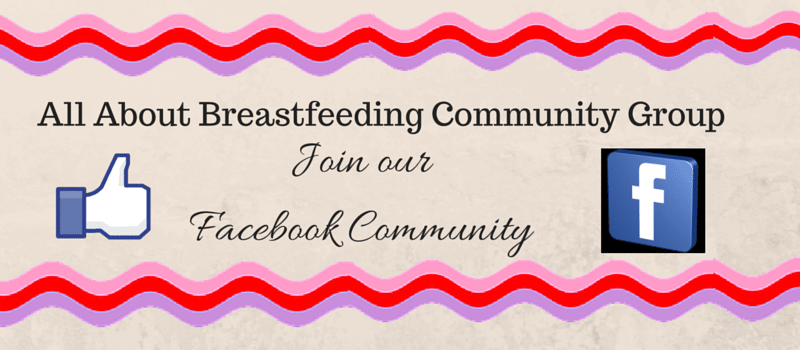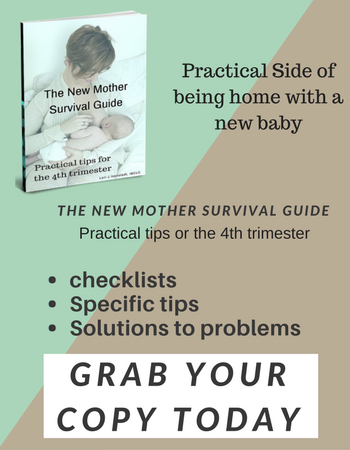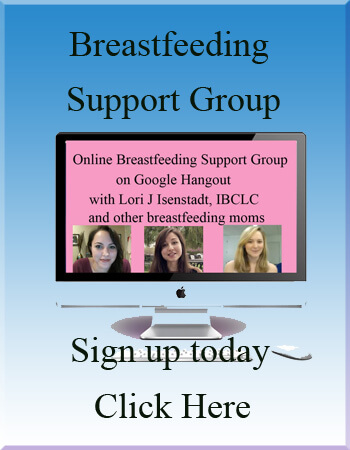Tom Johnston:
“One of the problems that new parents have is that they bring this new baby, this other person into the world, into their home and they try and pretend that this baby is not going involve them or change their entire existence. And it so certainly does And everything does change. The minute the pee hits the stick They need to embrace that they will never be the same again. and when you can and embrace the idea, it is so much easier to work your baby into your environment. But when you try and force baby to fit into your pre-conceived fantasy notions it’s doomed for failure”
Introduction
Tom Johnston is a midwife and lactation consultant. He obtained his Bachelor’s degree in Nursing at Austin Peay State University in Clarksville, Tennessee and his Masters Degree in Midwifery at the University of Rhode Island in Kingston. He served 27 years in the US Army and retired as the Chief of Midwifery Services for Womack Army Medical Center, the largest Maternal-Child service in the Department of Defense. Since retiring Tom has spent his time as an Assistant Professor of Nursing at Methodist University where he teaches undergraduate nurses, specializing in Maternal-Child Nursing and Nutrition. Tom is uniquely placed as a man in both Midwifery and Human Lactation and the father of eight breastfed children. He has spent his career advocating for the rights of fathers in the perinatal arena and has spoken on a variety of topics at conferences around the world, most recently for the Association of Woman’s Health and Neonatal Nurses (AWHONN), the International Lactation Consultant’s Association (ILCA), and dozens of other conferences across the country. In his written work he routinely addresses fatherhood and the role of the father in the breastfeeding relationship, has advocated for better science in the field of bedsharing and has authored a chapter on the role of the father in breastfeeding for “Breastfeeding in Combat Boots: A survival guide to breastfeeding in the military”.
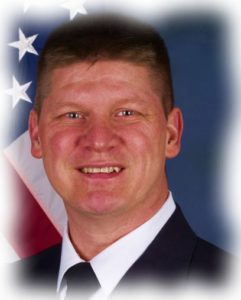 Tom Johnston is unique as a midwife and lactation consultant and the father of eight breastfed children. Recently retired after 27 years in the US Army, he is now an Assistant Professor of Nursing at Methodist University where he teaches, among other things, Maternal-Child Nursing and Nutrition. You may have heard him at a number of conferences at the national level, to include the Association of Woman’s Health and Neonatal Nurses (AWHONN), the International Lactation Consultant’s Association (ILCA), or perhaps at dozens of other conferences across the country. In his written work he routinely addresses fatherhood and the role of the father in the breastfeeding relationship and has authored a chapter on the role of the father in breastfeeding for “Breastfeeding in Combat Boots: A survival guide to breastfeeding in the military”.
Tom Johnston is unique as a midwife and lactation consultant and the father of eight breastfed children. Recently retired after 27 years in the US Army, he is now an Assistant Professor of Nursing at Methodist University where he teaches, among other things, Maternal-Child Nursing and Nutrition. You may have heard him at a number of conferences at the national level, to include the Association of Woman’s Health and Neonatal Nurses (AWHONN), the International Lactation Consultant’s Association (ILCA), or perhaps at dozens of other conferences across the country. In his written work he routinely addresses fatherhood and the role of the father in the breastfeeding relationship and has authored a chapter on the role of the father in breastfeeding for “Breastfeeding in Combat Boots: A survival guide to breastfeeding in the military”.
Bio –
Tom Johnston obtained his Bachelor’s degree in Nursing at Austin Peay State University in Clarksville, TN and his Masters in Midwifery at the University of Rhode Island in Kingston, RI (That’s right, midwife….He is also a Lactation Consultant). He retired from the Army as the Chief of Midwifery Services for Womack Army Medical Center in Fort Bragg NC after 27 years of service. He now uses his unique perspective to instill information and enthusiasm about Maternal-Child nursing to undergraduate nursing students at Methodist University in Fayetteville North Carolina. Tom is an avid speaker on such topics as the father’s role in breastfeeding and the stigma of breastfeeding in the general public. He is the author of various publications on breastfeeding and frequently blogs on his site “Sage Homme’s Breastfeeding Blog”
Career History Background –
Tom described himself as a worthless HS student, with a 2.2 GPA. He joined the army accidentally. Tom started out as an army medic and went to active duty and became a hospital cook for a few years. While there, he met his future wife who was a Neonatal Intensive Care Nurse. His next step in the army was to go to nursing school. Than came his Masters Degree and it was suggested that he become a midwife, just because his bosses thought he would make a good midwife. He has loved all of his 27 years in the army, including being his time being a midwife. However, up until the time he fell in love with lactation, the only career choice he made on his own was when he realized: ” I want to become a lactation consultant.” He achieved this goal in 2002 and now that he is retired he can go back and be a professor and be a lactation consultant and do what he really loves to do.
Family Life –
Tom is the proud father of 8 children. They range from ages almost 7 – 22 years old. He said: “We understand babies better than the average kids.” I practice what I preach. He enjoys living in North Carolina and life is fun. His wife worked full time until baby # 7 was born. They then moved to a place where there was no army hospital, she decided it was a good time to pull back and be a full time mom. That was 9 years ago and she is very happy being a stay at home mom.
Breastfeeding help he offered as a midwife –
He firmly believes that all health care providers plays a role in lactation, whether they think so or not. As a midwife he felt his role started from the moment the “pee hit the stick.” At the first OB visit he starts talking about breastfeeding. He asks parents to ” tell me what you know about breastfeeding?” Every prenatal visit he gives them homework and they come back and see him and it builds all the way through the pregnancy.
Pearls of wisdom he shares with parents:
Shut the door and put a No Visitors sign on the door and do nothing but hold your baby for the first 72 hours.
He likes to give parents enough information that Dad can help troubleshoot breastfeeding problems at home.
Tom helps new parents with breastfeeding by troubleshooting problems that they come in with. However, he feels strongly that the bulk of it is prenatal education before the baby is born. and he continues supporting the process in the early weeks postpartum. He has seen a lot of women who were not his patients but came to see him because he was a HCP that knew about lactation.
Was he breastfed –
Tom states that he is from a large blended family with 10 kids. He joked that Some were so old that he never met them.
His mom did say he was breastfed, but he does not know for how long.
Breastfeeding rates in the last 27 years –
Tom has been in the Maternal Child Nursing field since 1998. The reason he got into lactation is because others were horrible at it. It was his wife’s influence in breastfeeding that got him into it. She was an early mentor of his. It use to be that it was a 50/50 breastfeeding rate and yet 6 weeks rate was very low. We have come so far. Initiation rates are much better now, but could be better. Tom tells his patients that he thinks breastfeeding is very important. He tells them that he will be talking about breastfeeding at every appointment and if they don’t want to talk about breastfeeding, don’t come back to me. He shares a funny story. Listen to the podcast to hear the story.
We had a lovely conversation about labor and birth before we circled back to breastfeeding!
What life was like for him with his very first baby with reference to breastfeeding –
When his first baby was born he did not know a thing about it. He admits to being totally clueless. He went to prenatal visits and was ignored just like every other father was ignored. Tom states that he did not do much. I did not even know what I was missing. Breastfeeding worked out well and I was a good Dad like getting her water and helped out some, but did not really know what else to do. He had no idea how to help with breastfeeding, with latch, etc.
For his second baby, his classes were very different and he was more actively involved in the labor. From this experience, he really “got it” just how much Dads were not brought into the process much at all. Dads are useful partners. They are not disinterested. He learned how to be helpful and yet was feeling shut out again during the second labor. Instead of sitting in the sidelines this time though, he literally pushed his way in and this was his “watershed” moment as he really could see that Dads are pretty much more ignored in the birth arena.
He focused on different ways he could bring Dads more actively into birth. Tom says that Dads are not disinterested at all. It is just that most Birth Educators are female and they don’t know how to speak to husbands or fathers. They don’t speak “boy” very well and they are not boy-lingual. But Tom is a boy and a midwife so he can really speak to Fathers. You use humor and good analogies, he says.
The reality is that as lactation consultants, we don’t go home with moms. If you can encourage Dad to learn how to breastfeed, then mom will have someone there 24 hours a day to help with breastfeeding and this is a game changer.
Prenatal Appointments –
Guys want to know how to help. So at every visit, I have them both sitting in front of me, so he is not on the sidelines.
I ask them each: What do you know about breastfeeding? I focus on both parents. I give each one homework. She has to find someone who was successful at breastfeeding and talk to her about it. He, also has to find someone that he can talk to. Tom says that it is helpful to focus on both at each visit and give Dads tasks that he can accomplish. You have to give them something to do. Guys don’t care about pretty things and pink and pastels and baby clothes. With Dads, you would be amazed at what you can accomplish when you help them to solve the problem.
Tips on getting Dads to really help moms with breastfeeding in the early days –
He focuses a lot on giving dads tasks to accomplish. When Dad learns how to provide basic trouble shooting problems – what a good latch looks like, what a poor latch looks like and how to fix it, this is helpful. Dad needs to be told that he is the Guardian of his family. He is the Protector of the environment. When someone comes in and wants to interrupt, it is Dads job to say: Excuse me, we said, please do not disturb.
Mom is vulnerable. Dad is not. He talked to a mom who said:
The moment her baby was born, she was the most powerful and the most powerless that she had ever been. She felt like she could do anything and yet she was at the mercy of everyone around her where she had to be accommodating and be a good patient. Dads are not so vulnerable. Dads can be a wonderful ally in the process.
Tom gives some great tips on how to deal with family members who are really trying to do their best, but may not be so helpful with breastfeeding. They mean well, but they don’t know how. They just need to be told how they can best help the mother. Tom says that he has a mom talk, a dad talk, a grandma talk and a grandpa talk. He speaks differently to each person in the environment based on what they need at the time.
Tom has some pearls of wisdom.
He shares a story about how he tried to help his wife get more sleep and how he realized that he was offering the kind of help that she did not need. Birth is not a spectator sport. If the baby is ever more than arms distance away, they are making breastfeeding more difficult.
Amy Brown: Her words of wisdom from the GOLD Conference –
One of the problems that new parents have is that they bring this new baby, this other person into the world, into their home and they try and pretend that this baby is not going involve them or change their entire existence. And it certainly does. Everything does change. The minute the pee hits the stick They need to embrace that they will never be the same again. and when you can and embrace the idea, it is so much easier to work your baby into your environment. But when you try and force baby to fit into your pre-conceived fantasy notions it’s doomed for failure
What do you tell a Dad when he is missing his life as a couple –
I always like to start with something positive because remember Dad has the best interest of the couple at heart even when he sounds selfish. So I usually start off with something like: ” I know you love your wife and that you miss being together as a couple. But the world it has to change when you bring a child into the world. You now have to re-negotiate your relationship to include your baby. Because no matter what happens, your baby is going to be here every day for the rest of your life. It does no good to want your old life back. Because you can’t go back. You can never be 18 again. Never, so you have to move on. You have to embrace the new normal. I miss it too. But guess what, I found something else to take its place.
Tom has some pearls of wisdom to share that works nicely with military families –
I do have to say that I am out of my field of expertise here because Tom makes what I can see is a really good analogy to help military Dads help their wife with breastfeeding. However, not being a military person:it does not “stick” with me. Listen to the show to get all the details.
Tom is very happy to speak with my listeners and he is happy to answer your questions. He encourages my listeners to do so.
Contact information
jjohnston@methodist.edu
http://lactspeak.com/jaroldjohnston/speaker/profile/

listen Now
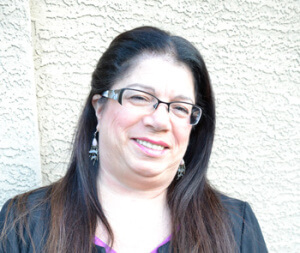 Lori Jill Isenstadt, IBCLC is a huge breastfeeding supporter. She has spent much of her adult life working in the maternal health field. Once she became turned on to birth and became a childbirth educator, there was no stopping her love of working with families during their childbearing years. Lori became a Birth doula and a Postpartum doula and soon became a lactation consultant. She has been helping moms and babies with breastfeeding for over 25 years. Lori founded her private practice, All About Breastfeeding where she meets with moms one on one to help solve their breastfeeding challenges. She is an international speaker, book author and the host of the popular itunes podcast, All About Breastfeeding, the place where the girls hang out. You can reach Lori by email at: aabreastfeeding@hotmail.com or contact her via her website: allaboutbreastfeeding.biz/contact
Lori Jill Isenstadt, IBCLC is a huge breastfeeding supporter. She has spent much of her adult life working in the maternal health field. Once she became turned on to birth and became a childbirth educator, there was no stopping her love of working with families during their childbearing years. Lori became a Birth doula and a Postpartum doula and soon became a lactation consultant. She has been helping moms and babies with breastfeeding for over 25 years. Lori founded her private practice, All About Breastfeeding where she meets with moms one on one to help solve their breastfeeding challenges. She is an international speaker, book author and the host of the popular itunes podcast, All About Breastfeeding, the place where the girls hang out. You can reach Lori by email at: aabreastfeeding@hotmail.com or contact her via her website: allaboutbreastfeeding.biz/contact Submit a comment
your email address will not be published
